by Dr. Wina Smeenk
Lecturer Societal Impact Design, Founder of the Expertise Network Systemic Co-design (ESC)
The Dutch chemical industry is working hard on innovations for a sustainable, safe, circular and climate-neutral society. These innovation processes involve new safety risks at different system levels with many different stakeholders. Consider, for example, the shop floor, manager and ceo within the many different organizations, which in turn are located next to or near each other on a shared industrial site. But stakeholders are also the visiting contractors, subcontractors and suppliers of all these different companies. Pretty complex, in other words.
New ways of cooperation and knowledge sharing about (in)security between these system layers and stakeholders could accelerate transitions and thus impact, both socially and economically. The core of multiple value creation and societal earning power.
Therefore, Safety Delta Netherlands (SDN) and the program team (ClickNL) of the KIA Maatschappelijk Verdienvermogen (KIA MV) have driven an experimental project on safety in the chemical industry, the results of which were recently published.
In this recent hands-on design research project commissioned by Safety Delta Netherlands and ClickNL, the Expertisenetwerk Systemisch Co-design (ESC), a collaborative collective of design lecturers from four colleges of higher education, looked at, together with Chemelot (Sittard-Geleen, see among others. Chemelot consciously safe together) how to approach safety culture and organization differently and more systemically. In several interviews and co-design sessions, the researchers worked with industry as co-researchers to find out if and how new more participative, creative and systemic tools in the chemical industry can make a concrete contribution to the cooperation between companies, employees and other stakeholders around safety issues. Knowledge was gathered at different levels resulting in
1) we gained richer insights and examples in the field of security
2) we learned how dialogues can be scaled up and deployed strategically; and
3) we can share and combine learning experiences within the concept of social earning power.
Results of this experimental research project -in addition to these new experiences and insights into creating a safety culture and approach- also led to concrete tools for practice in the form of a systemic safety dialogues toolkit.
The toolkit basically consists of the co-design canvas from Inholland University of Applied Sciences and the innovate with labs process from The Hague University of Applied Sciences: two tools that drive and stimulate systemic, participatory and creative collaboration(systemic co-design). Added to these tools are a manual developed by ESC partner Fundamentals, a circle for safety story map and a take away map. The systemic safety dialogues toolkit is now available for download from the library of SDN or the ESC Network of Expertise website.

3 November 2022

